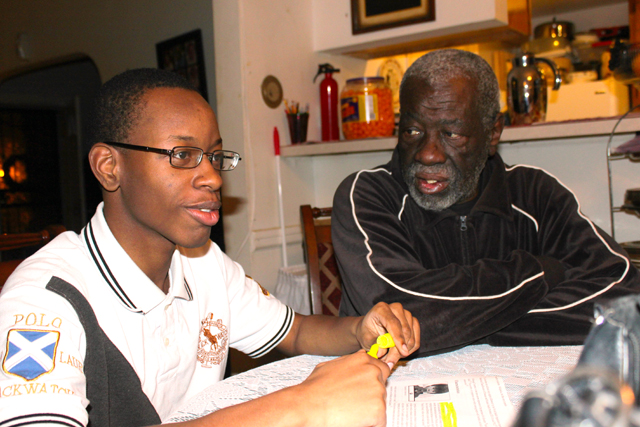“Either he doesn’t get it, or he doesn’t care,” Sheila Jackson, parent of a D.C. Opportunity Scholarship recipient, said upon hearing the news that President Obama’s budget eliminates funding for the popular program.
Jackson sounded torn about which was worse. “I was appalled,” she told Scribe.
The D.C. Opportunity Scholarship Program provides low-income families in one of the worst public school systems in America with vouchers to attend private schools of their choice. More than 1,600 students are benefiting this year alone.
Jackson’s daughter, Shawnee, has had a scholarship since fifth grade. She’s now a junior in a private high school and plans to attend college and become a pediatrician. At her old public school, teachers refused to give her after-school help in math because, as they told Sheila, “If she doesn’t get it, she doesn’t get it.” Shawnee has proven them all wrong.
“I’m really not shocked because [President Obama] hasn’t been a supporter,” Patricia William, parent of two scholarship students, told Scribe. “But I still had hope he would come through in the end.”
William’s two sons — Fransoir, a 15-year-old in 10th grade, and Pierre, an 8-year-old in second grade — have benefited from the program. She said the scholarships saved Fransoir’s life.
“He could have taken the wrong path” in his old public school, before the Opportunity Scholarship Program gave him the chance to attend a private school. She said it also taught her how to be a better parent, and to be involved in her children’s education. Eight-year-old Pierre walks up to his mom regularly and says, “I must go to college!”
Joe Kelley, father of three daughters in the program and a son who just graduated high school, called the program a “blessing” over and over again in an interview with Scribe last month. Kelley’s son is now attending college, an achievement that wouldn’t have been possible without a scholarship.
It’s common knowledge among Opportunity Scholarship Program parents that Obama himself is the product of a private education at an elite high school in Hawaii, which he attained with the help of a scholarship. It’s also commonly known that his two daughters attend the prestigious Sidwell Friends private school in Washington, D.C.
When asked on Today in 2010 if his daughters would get the same kind of education in a D.C. public school that they receive at Sidwell Friends, Obama answered, “I’ll be blunt with you: The answer is no, right now.”
Jackson said Obama’s “lack of concern” for the Opportunity Scholarship Program “doesn’t make any sense at all.” She doesn’t understand “why he wouldn’t want our kids to have the same opportunities as [those] he and his wife” can give to their children.
This isn’t the first time Democrats have tried to cripple the program. In 2009, Obama supported language to phase out funding and cut it off to new students. A storm of protest summoned by the parents of OSP recipients and a legislative effort by Speaker John Boehner (R-OH) pulled it back from the brink of extinction in 2011.
In a profile for Black History Month in World Magazine, parent leader and OSP advocate Virginia Walden Ford said of the struggle, “God gave us a miracle.”
The program makes sense financially, it has proven results, and it’s enormously popular with parents.
So why does Obama so tenaciously object to this program, which gives low-income families the opportunity to break the cycle of poverty and access a better education, all at a lower per-pupil cost to the taxpayer than surrounding public schools, and with better results in graduation rates, academic achievement and parental satisfaction?
The answer is simple: political expediency. Powerful teachers’ unions have opposed the program because it poses a threat to the public school monopoly on education.
Leaders of those teachers’ unions, like former National Education Association general counsel Bob Chanin, have admitted as much. Chanin said in 2009, “It is not because we care about children; and it is not because we have a vision of a great public school for every child. The NEA and its affiliates are effective advocates because we have power.”
Obama’s attempt to sneak the termination of a literally life-saving program for low-income families into his budget proposal is chilling proof of that power. In the meantime, parents in Washington, D.C., will never give up the fight for their children’s futures.
“I try to stay focused and not get discouraged,” Patricia William said. “I’m going to continue fighting.”
Alison Meyer and Phoebe Daigle contributed research to this report.




























